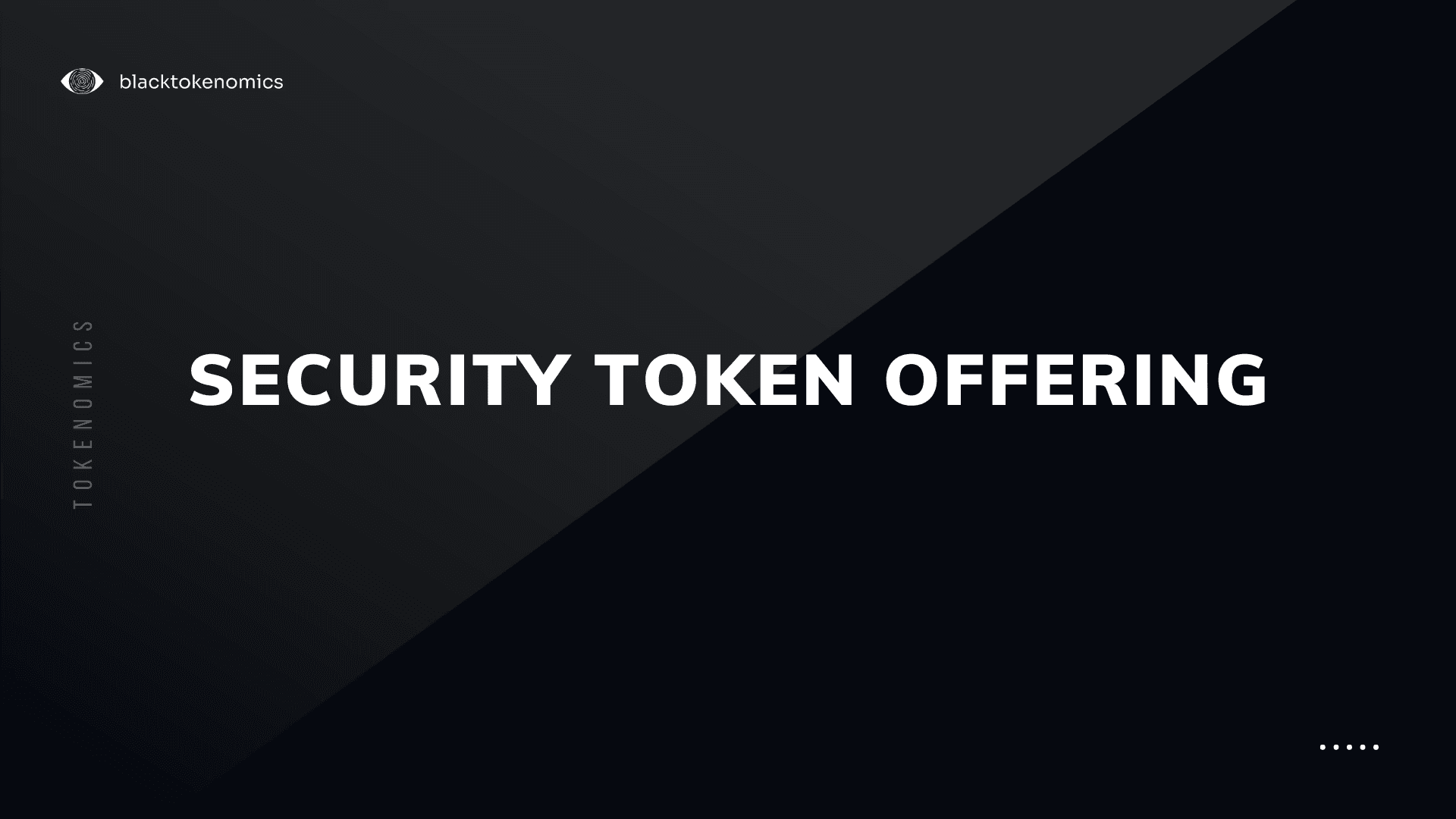
Sven
The world of fundraising and investing is undergoing a significant transformation, thanks to Security Token Offerings (STOs).
These innovative financial mechanisms promise increased security, regulatory compliance, and a more inclusive investment landscape.
But what is a security token offering (STO), and how can they reshape the way we invest? Let’s dive in and explore this exciting new frontier in finance.
Key Takeaways
Security Token Offerings (STOs) provide a regulated alternative to Initial Coin Offerings (ICOs), offering tokens that represent shares in valuable assets and are subject to securities laws.
STOs offer increased security, lower risk, cost-effectiveness and efficient processing time for investors looking for access investments with convenience and liquidity.
The future outlook of Security Token Offerings is positive as the market develops greater potential to change how companies raise funds while providing secure investment opportunities.
Understanding Security Token Offerings (STOs)
A regulated alternative to the much-criticized Initial Coin Offerings (ICOs) is provided by Security Token Offerings (STOs).
STOs involve the issuance and sale of security tokens, digital contracts that represent shares in valuable assets, safeguarding ownership stakes on a public ledger.
These tokens derive their value from real-world assets and, unlike ICOs, are subject to securities laws, ensuring a more secure and compliant method of raising capital through a security token offering or STO.
Distinguishing STOs and ICOs is their difference in regulatory compliance and focus on tokenizing tangible assets, such as equity, debt, and real estate.
As a result, STOs have gained traction among investors seeking a safer, more reliable, and transparent fundraising method in the blockchain ecosystem.
Definition and Purpose
Security tokens are digital contracts that function similarly to traditional securities like stocks or bonds.
In essence, security tokens represent shares of valuable assets and preserve ownership stakes on a public ledger, offering companies a regulated way to raise capital.
The major difference between STOs and Initial Public Offerings (IPOs) is the nature of the asset being offered.
While the initial public offering involves the sale of company shares to the public, STOs are digital tokens that derive their value from tangible assets and are subject to securities regulations.
This distinction makes STOs a more secure and compliant method of raising capital, attracting both experienced and novice investors.
STOs vs ICOs
A safer alternative to ICOs has emerged in the form of STOs, which have been plagued by fraud and regulatory issues.
The main advantage of STOs is their compliance with securities legislation, ensuring that token transactions are subject to regulation and investor protection.
In comparison to ICOs, STOs emphasize tokenizing tangible assets using smart contracts to automate processes and ensure compliance.
This focus on real-world assets and regulatory adherence has made STOs an attractive option for investors seeking secure and legitimate investment opportunities in the blockchain space.
Types of Security Tokens
Three main types can be used to categorize security tokens, each representing different forms of investments: equity tokens, debt tokens, and asset-backed tokens.
To issue security tokens, one must understand these categories and their respective implications.
These tokens can be traded on traditional investment platforms and the blockchain network, offering investors a wide range of options to diversify their portfolios.
Equity Tokens
Equity tokens represent ownership of a company stock and may offer voting rights and dividends to investors.
As an equity token, it is registered on the blockchain, ensuring transparency and accessibility for all equity token holders.
The benefits of equity tokens include:
Revolutionizing a company’s decision-making, financial planning, and regulatory frameworks.
Allowing startups to access novel and potentially more egalitarian fundraising models.
Enabling investors to participate in voting while adhering to securities regulations.
Debt Tokens
Debt tokens are digital representations of a loan with an interest rate, secured by a smart contract. Risk and dividend are key factors that determine the price.
Different levels of risk of default cannot be priced the same for real estate mortgages and pre-IPO bonds.
Debt tokens offer investors a low-risk, high-yield investment opportunity with the potential for capital growth.
Furthermore, they provide investors with liquidity, as they can be conveniently traded on the secondary market.
However, the primary risk associated with debt tokens is the potential for default, as the issuer may not be able to fulfill their repayment obligations.
Asset-backed Tokens
Asset-backed tokens provide digital access to real world assets. These include:
Real estate,
Art,
Commodities,
Precious metals.
The purpose of these tokens is to facilitate access to investments, including venture capital funds, by enabling fractional ownership, which may otherwise be unavailable to certain investors.
One of the key advantages of asset-backed tokens is the security and transparency provided by blockchain technology.
This allows for secure and transparent transactions, reducing the likelihood of fraud and improving settlement time.
As the market for digital assets continues to expand, asset-backed tokens present a unique and promising investment opportunity.
The Process of Launching an STO
Launching an STO is a complex process that requires careful planning and execution. It involves several stages, from preparation to post-STO activities, each with its own set of challenges and considerations.
Understanding the legal and regulatory requirements is crucial before launching an STO the legal and regulatory requirements.
Preparing for an STO
Legal consultation is part of the preparation stage for an STO, defining the role, purpose, and features of the token, and fine-tuning details.
During this stage, it is essential to assess corporate structure and governance, particularly when the tokens resemble traditional equity securities.
A key component of this process is designing the token’s economic model, which dictates its supply, distribution, and incentives—crucial for a successful offering. For an in-depth guide, explore this resource on crafting a winning token economics framework.
Creating a comprehensive whitepaper is another significant part of preparing for an STO that elucidates all aspects of the project.
This document serves as a fundamental element in the approval of the project’s token offering and helps investors understand the project’s goals and potential.
Running the STO
The token sale is initiated during the execution phase of an STO, and investors are invited to participate. This process involves marketing, investor relations, and other associated activities to ensure a successful token sale.
To facilitate a smooth STO, it’s essential to have a support team in place that can promptly address investor inquiries on crypto forums and social media outlets.
Providing a hotline or ticket submission portal on the project’s website can also help address client issues efficiently and effectively.
Post-STO Activities
Following the STO, the project team’s focus switches to:
Building a secure and user-friendly blockchain application that supports the security token.
Keeping investors updated on the project’s progress.
Providing technical support to ensure seamless integration of the token into the blockchain ecosystem.
In addition to developing the product, the post-STO phase also includes listing the security token on exchanges and obtaining authorization from relevant regulatory authorities.
This ensures that the token is compliant with securities laws and can be traded by investors on the secondary market.
Advantages of Security Token Offerings
Compared to traditional investment mechanisms, STOs offer several advantages:
Increased security,
Lower risk,
Cost-effectiveness,
Efficient processing time.
These advantages are achieved through the use of blockchain technology and smart contracts.
For novice investors, STOs present an opportunity to:
Access investments through crypto-fractionalization, which may otherwise be unavailable,
Benefit from the convenience and liquidity of 24/7 trading,
Diversify their portfolios,
Tap into the potential of digital assets.
This makes STOs an attractive option for investors seeking to diversify their portfolios and tap into the potential of digital assets.
Challenges and Risks Associated with STOs
Increased regulation leads to challenges for STOs, despite their potential, complicated administrative processes, and limitations on who can invest.
These factors can make launching and participating in an STO more complex than traditional investment methods.
However, it’s important to note that these challenges and risks are often outweighed by the benefits and potential of STOs.
As the legal and regulatory landscape continues to evolve, it’s likely that STOs will become more accessible and streamlined, paving the way for a new era in fundraising and investing.
Legal and Regulatory Landscape of STOs
Various jurisdictions impose securities laws and regulations that STOs must adhere to, making the legal and regulatory landscape complex and constantly evolving.
This complexity requires companies launching STOs to carefully navigate the regulatory environment and ensure compliance with all relevant laws and regulations.
Despite these challenges, the legal and regulatory landscape surrounding STOs is expected to mature and stabilize over time.
As more companies and investors recognize the potential of STOs, regulators are likely to develop clearer guidelines and frameworks to support this growing market.
Participating in an STO
A series of steps must be followed by investors to participate in an STO, including researching the project, completing KYC/AML checks, and investing in the token sale.
These steps ensure that investors are well-informed about the project and its potential, while also protecting against fraud and money laundering.
Once the investment is made, investors can benefit from the potential returns and diversification offered by STOs.
As the market for digital assets continues to grow, participating in STOs can provide investors with unique opportunities to access new markets and tap into the potential of emerging technologies.
Future Outlook and Potential of STOs
The way companies raise funds has the potential to be changed by STOs and investors access investment opportunities.
With the continued development of regulations and the growing adoption of tokenization, STOs are likely to play an increasingly important role in the future of fundraising and investing.
As more companies recognize the benefits of STOs, and as the legal and regulatory landscape continues to evolve, we can expect to see a growing market for security token offerings.
This will pave the way for more secure, transparent, and accessible investment opportunities for both experienced and novice investors alike.
Top STO Platforms
Support for the growing STO market has emerged from a number of platforms, offering various tools and services to help companies launch and manage security token offerings. Some of the top platforms include:
Polymath,
Securitize,
Securrency,
Swarm,
Tokensoft.
These platforms provide a range of security token offering services, from token creation and issuance to regulatory compliance and investor management.
By leveraging the expertise and technology offered by these platforms, companies can navigate the complex landscape of STOs and ensure a successful token offering.
Summary
In conclusion, Security Token Offerings (STOs) represent a groundbreaking innovation in the world of fundraising and investing.
By combining the advantages of blockchain technology with the security of traditional securities, STOs offer a promising alternative to traditional investment mechanisms.
As the legal and regulatory landscape continues to evolve, and as more companies and investors embrace the potential of STOs, we can expect to see a bright future for this emerging market.
Sven
Sven is a digital entrepreneur with over 8 years of experience in SEO. He has helped Web3 businesses optimise their online presence online. He has a deep understanding of the Web3 space and ensures to vet all the projects BlackTokenomics works with.



